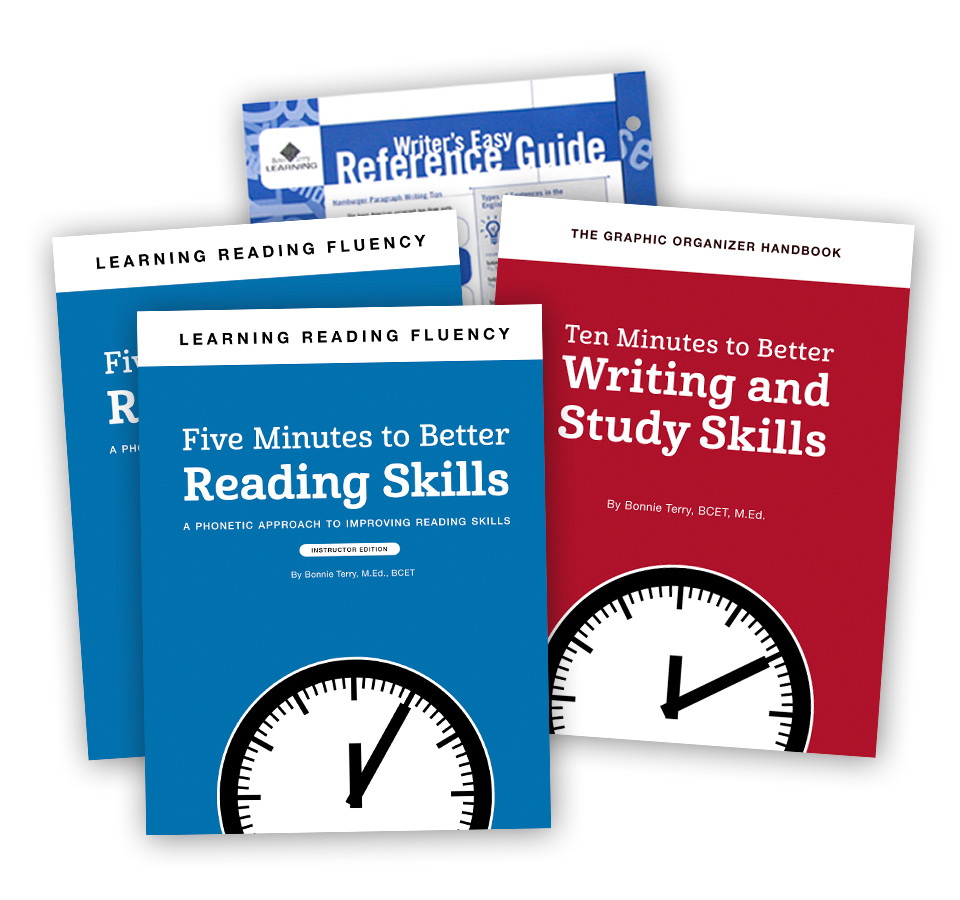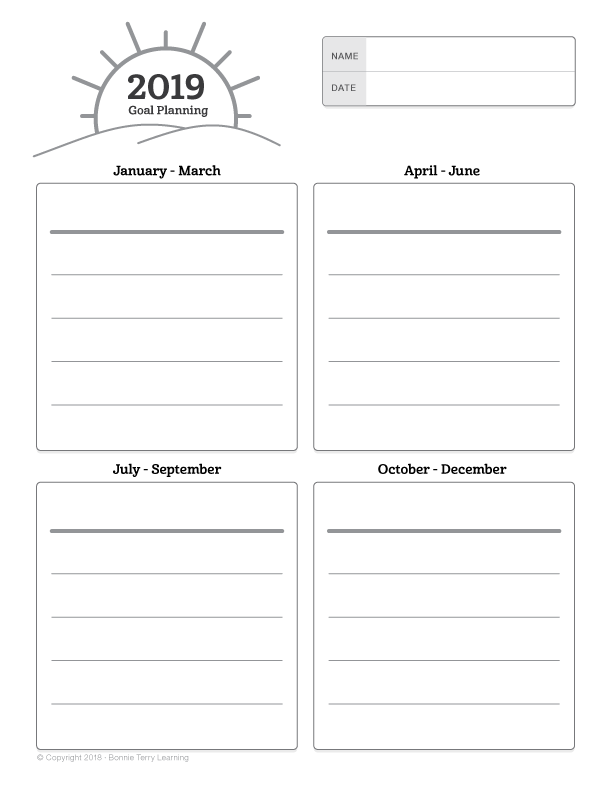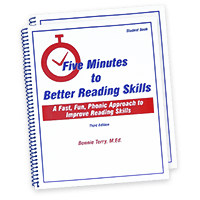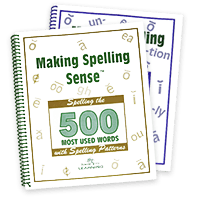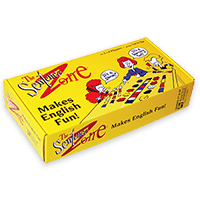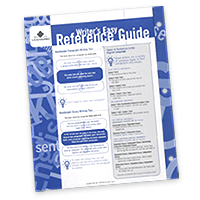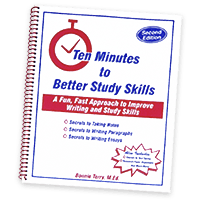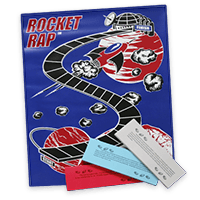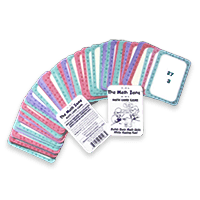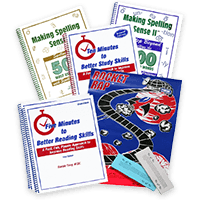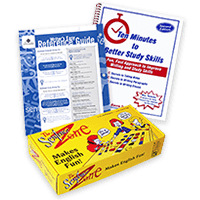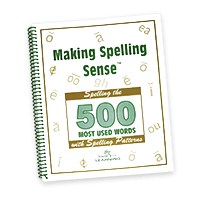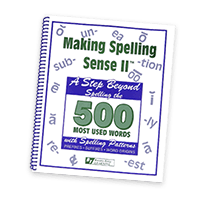2019 Goal Setting, Executive Function, and Planning Skills
January 1st, 2019Are you ready to accomplish great things this year?
Setting goals and priorities are the first steps to accomplishing what you want to do. When you set goals, it increases your motivation to take the steps to actualize them. The best way to do this is to write your goals down and then to identify and write the steps you need to take to make them a reality. This is known as backward design. Students and people of all ages have a clearer picture of why and what they need to do to attain the goals. This then helps them efficiently concentrate their efforts towards attaining the goals and priorities set forth.
For fill-in-the-blank goal setting, priority planning, daily, weekly, and monthly calendar planning worksheets, be sure to check out our new Ten Minutes to Better Writing and Study Skills book.
What is the correlation between executive function, goal setting, and planning skills?
Executive function is the set of mental skills needed to control one’s own behavior. Executive function includes attention control, working memory, ability to tune out irrelevant stimuli and the ability to think about multiple concepts.
It often takes time for kids to thoroughly develop their executive function skills where they are able to completely focus on a goal or task at hand without getting distracted by something shiny. You can often watch a bright child make choices without thinking through the consequences. Kids can end up wasting hours trying to get their homework or projects done, only to be stressed out and not working optimally. Their grades do not reflect their true talents. This is often due to their inability to plan what they need to do to complete their homework or project and manage their time. It is not uncommon for adults to have difficulties with their executive function skills as well, especially when we live in this digital age where everything is trying to grab your attention.
Actively setting goals and priorities can drastically help people with executive function difficulties and build these lifelong necessary skills. When you write the goals down, it makes them real. When you write the steps down needed to attain the goals, you have a clear path of what needs to be done and what is expected.
Focus and accomplishing goals does not innately get better with age.
Adults are often better at their executive function skills, but not everyone grows to be successful and accomplished. Sometimes it is easy to get swept with the woes of life and feel powerless against all of the external inputs. When you see your kids struggle, you often think, well, it will be better next year. However, more often than not, that does not happen because the reason for the struggle is lack of planning skills. Planning skills don’t automatically just appear with age and executive function skills are not totally intact until your mid-twenties and if you never had any training in the skills that are involved, you may still struggle throughout life. So, what can you do to help your kids with goal setting?
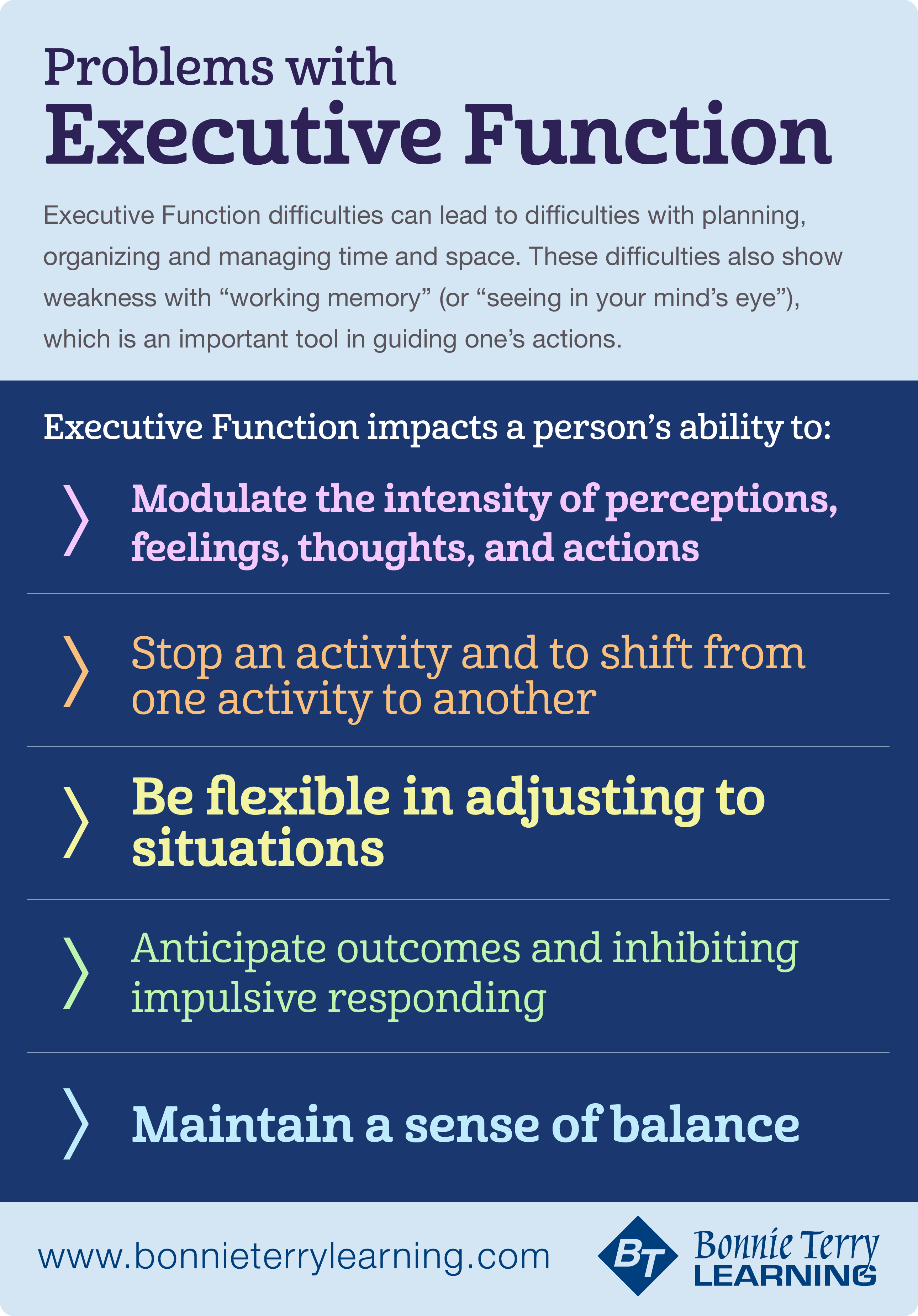
Goal Setting
There are several times during the year that are perfect for re-evaluating what you are doing and how you are doing it. My favorite times of year to do a ‘reset,’ review your goals three to four times a year. The most natural time is in January, the beginning of the New Year. The next time that is easy to help your kids with goal setting is at their birthday. And, finally, the third natural ‘reset’ time is at the beginning of the school year or beginning of each semester or grading period.
Setting Goals Video
Daily, Weekly, and Monthly Planning
After you set your goals and priorities for the year, it helps to plan items in a weekly and monthly calendar that you periodically reference so that you stay on track. Plan the next week on Friday or Sunday. This is a great way to set your week up so you have a clear idea of what is coming up and you can enjoy your weekend without stressing. On Monday, review your plan and make any adjustments that need to be made. It is better to work a little bit every day towards your goals than it is to try and cram everything you want to do in a day.
Review Your Week
After each week, write down a list of items that you accomplished that week and write a sentence or paragraph about what went well, what was difficult, and what you want to improve. Don’t worry or stress if you weren’t able to do everything you set out to do. We often like to idealize everything we want or have time to do, but realistically, we cannot do everything. As time goes on with planning and reviewing your weeks, you will get better at time management and will better understand out how much time things actually take you to do.
Get a Great Start to 2019 with our Reading and Writing Bundle
10% Off When You Buy the Bundle
- Reading Fluency Training
- Graphic Organizers to Help Your Writing and Planning Skills
- Writer’s Reference Guide for Quick Writing Tips
2019 Goal Planning
Have you thought about your goals for 2019 yet? Get started with our 2019 Goal Planning Graphic Organizer.
